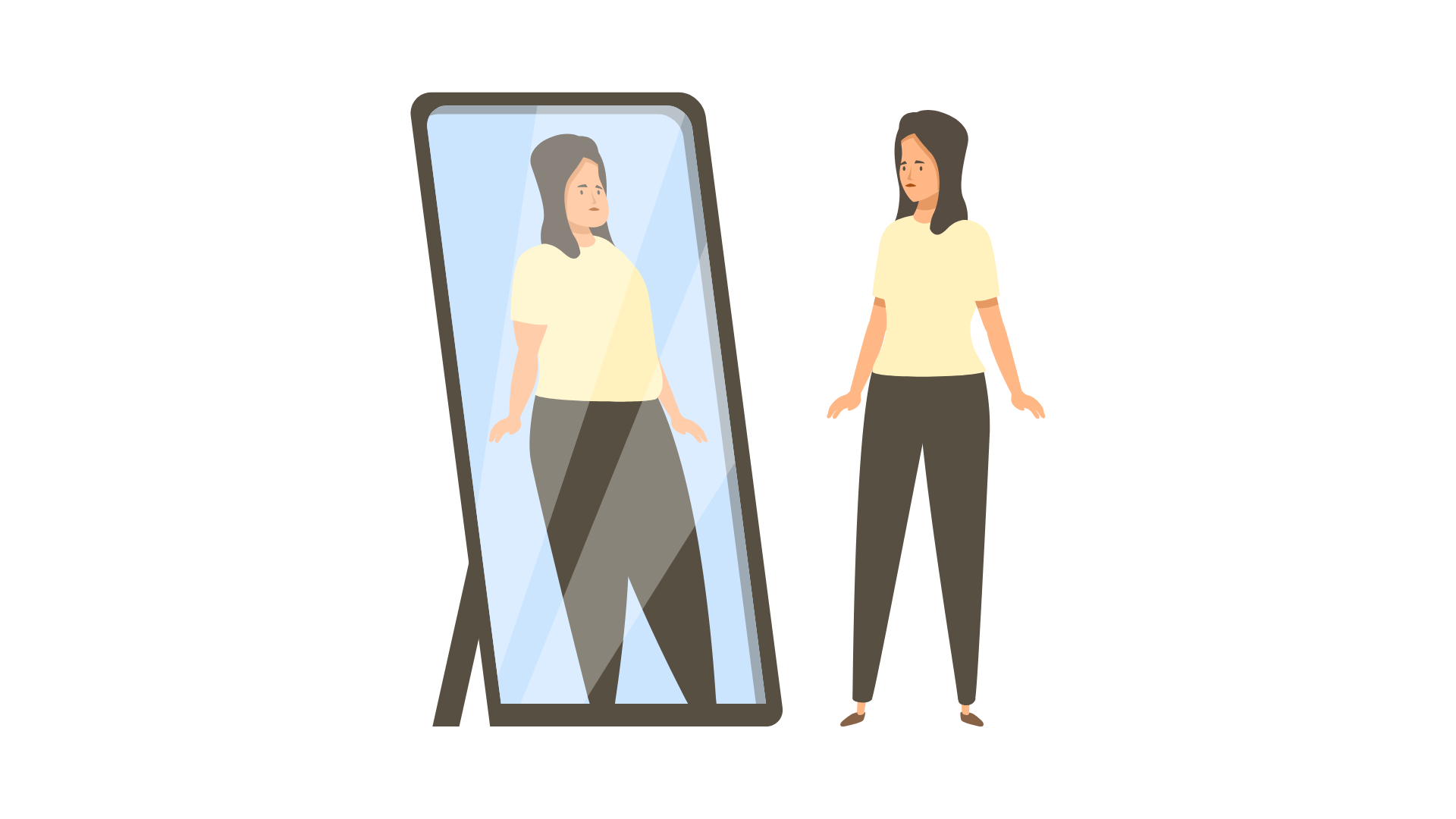Expert Care for Co-Occurring Eating Disorders and Obsessive Compulsive Disorder
At Cope & Calm Counseling, our group practice specializes in treating the complex intersection of eating disorders and obsessive compulsive disorder (OCD). Our mental health professionals understand that these co-occurring disorders create unique challenges requiring specialized expertise and individualized treatment approaches.
Located in Connecticut, we serve clients in Danbury, Greenwich, and Hartford through both online and in-person sessions. Our team recognizes that high-performing individuals often struggle with perfectionist tendencies that fuel both eating disorder behaviors and ocd symptoms, creating cycles that can feel overwhelming and isolating.
Specialized Disordered Eating & OCD Treatment in Connecticut
Understanding Co-Occurring Eating Disorders and OCD
The connection between eating disorders and obsessive compulsive disorder runs deeper than surface similarities. Research shows that individuals with eating disorders experience OCD at significantly higher rates than the general population, with some studies indicating lifetime prevalence rates up to 60%.
Common Presentations We Treat
Anorexia Nervosa and OCD: When anorexia nervosa co-occurs with obsessive compulsive disorder, clients often develop rigid ritualistic behaviors around food intake, exercise, and body checking. The perfectionist control seen in anorexia nervosa aligns closely with OCD patterns, creating particularly challenging comorbid eating disorders.
Bulimia Nervosa and Compulsive Behaviors: Bulimia nervosa combined with obsessive compulsive disorder presents unique challenges where binging and purging cycles intertwine with obsessive thoughts about food contamination, counting calories, or achieving perfect body image.
Body Dysmorphic Disorder: Often co-occurring with both eating disorders and obsessive compulsive disorder, body dysmorphic disorder creates intense focus on perceived physical flaws, leading to disordered eating patterns and compulsive behaviors focused on body image concerns.

Our Specialized Treatment Approach
Evidence-Based Therapies for Effective Treatment
Cognitive Behavioral Therapy (CBT): As the gold standard for treating eating disorders and obsessive compulsive disorder, cognitive behavioral therapy addresses the cognitive distortions and behavioral patterns maintaining both conditions. Our approach helps clients identify thought patterns fueling eating disorder behaviors and ocd symptoms while developing balanced thinking patterns and practical anxiety management skills.
Exposure and Response Prevention (ERP): This specialized component of cognitive behavioral therapy involves gradually exposing clients to anxiety-provoking situations while preventing typical compulsive responses. For eating disorders and OCD, response prevention might include exposure to feared foods while preventing ritualistic behaviors like excessive exercise, body checking, or purging.
Cognitive Restructuring: Our therapists utilize cognitive restructuring techniques to address cognitive distortions related to body image issues and distorted body image perceptions. This approach targets the root causes of obsessive thoughts about food, including counting calories and restrictive eating habits.
Acceptance and Commitment Therapy (ACT): ACT helps clients develop psychological flexibility, allowing them to stay present with difficult thoughts and feelings while taking values-driven action. This approach particularly resonates with high-performing individuals who struggle with perfectionist control-seeking behaviors.
Mindfulness-Based Therapy: Integrated throughout treatment, mindfulness techniques help clients observe obsessive thoughts and compulsive urges without automatically acting on them, supporting the development of self compassion and emotional regulation.
Internal Family Systems (IFS): IFS therapy provides understanding of internal conflicts present in individuals with comorbid eating disorders and obsessive compulsive disorder, helping clients develop compassionate relationships with different aspects of themselves.
Comprehensive Disorder Treatment Components
Nutrition Counseling Support: While addressing the psychological aspects of eating disorders and obsessive compulsive disorder, we recognize that nutrition counseling plays a crucial supporting role. Our approach includes education about balanced food intake while respecting each individual's relationship with food and recovery process.
Body Image Work: Addressing body image concerns and distorted body image perceptions forms a central component of our treatment for both eating disorders and obsessive compulsive disorder, helping clients develop healthier relationships with their physical selves.
Trauma-Informed Care: We practice trauma-informed approaches, recognizing that many individuals with eating disorders and obsessive compulsive disorder have experienced trauma that may contribute to their symptoms and overall mental health concerns.
Who We Help
Our Ideal Clients
Our clients are typically high-performing, anxious individuals who present as type-A personalities and perfectionists. They often struggle with racing thoughts, physical tension, and burnout while maintaining external success. These individuals frequently experience periods of high performance expectations but feel scattered and frenzied internally.
Common characteristics include:
Difficulty getting thoughts into action despite intelligence
Living in extremes - either doing everything or feeling stuck
Craving close relationships while fearing vulnerability
Seeking certainty and control to manage overwhelming internal experiences
Excellent at helping others while neglecting self care
Conditions We Specialize In
Primary Eating Disorders:
Anorexia nervosa
Bulimia nervosa
Disordered eating patterns
Body image issues
Anxiety Disorders and OCD:
Obsessive compulsive disorder
Body dysmorphic disorder
Anxiety disorders
Perfectionism-related concerns
Related Mental Health Issues:
Trauma responses
Depression and mood concerns
ADHD and neurodivergence
Teen and young adult concerns
LGBTQ+ affirming care
What Makes Our Treatment Different
Specialized Expertise in Co-Occurring Disorders
Our mental health professionals bring extensive experience in treating eating disorders alongside obsessive compulsive disorder. We understand that these two disorders create reinforcing cycles requiring specialized intervention strategies that address both conditions simultaneously.
Continuous Professional Training
Our team engages in weekly consultations and monthly professional training to stay current with best practices in treating eating disorders, obsessive compulsive disorder, and related mental health conditions. This commitment ensures clients receive the most effective treatment approaches available.
Small Caseloads and Collaborative Care
We maintain small caseloads to ensure thorough treatment planning and regular consultation with colleagues. This approach allows individualized attention that complex co-occurring disorders require while benefiting from collective clinical wisdom.
Neurodivergence-Affirming Practice
We specialize in understanding how neurodivergence, particularly ADHD, intersects with eating disorders and obsessive compulsive disorder. Many clients discover their perfectionist tendencies serve as coping mechanisms for underlying attention differences or sensory sensitivities.
Our Treatment Process
Initial Consultation and Assessment
When you contact Cope & Calm Counseling, our intake coordinator conducts a phone consultation to understand your specific needs regarding eating disorders, obsessive compulsive disorder, or related anxiety disorders. We gather information about your concerns, share details about our practice approach, and match you with a therapist whose extensive experience aligns with your treatment goals.
Personalized Treatment Planning
Every client receives individualized treatment planning that addresses their unique presentation of eating disorders and obsessive compulsive disorder. We work collaboratively to develop treatment strategies aligned with your specific needs, values, and life circumstances, ensuring comprehensive symptom management.
Ongoing Support and Skill Building
Our approach typically involves weekly therapy sessions for optimal progress in applying treatment strategies between appointments. You'll have direct contact with your therapist for scheduling and receive additional resources supporting your progress outside sessions.
Flexible Service Delivery
We offer both online therapy sessions throughout Connecticut and in-person sessions at our comfortable location with convenient parking. Our online platform provides secure, HIPAA-compliant access, while our in-person setting offers a welcoming environment for healing.
Expected Outcomes and Recovery Support
Building Long-Term Resilience
Our treatment focuses on building practical skills for lifelong use, including emotional regulation strategies, distress tolerance skills, and sustainable lifestyle patterns supporting ongoing well-being. We address both eating disorder recovery and ocd symptom management through comprehensive approaches.
Reducing Disorder Severity
Through specialized treatment addressing both eating disorders and obsessive compulsive disorder simultaneously, clients typically experience significant decreases in symptom severity and improved overall mental health functioning.
Developing Healthy Relationships with Food and Self
Recovery involves rebuilding flexible, peaceful relationships with eating while developing self compassion and body acceptance. We support clients in challenging rigid food rules and developing intuitive eating patterns that honor both physical needs and psychological well-being.
Why Choose Cope & Calm Counseling
Specialized Focus on High-Performing Individuals
We understand the unique challenges faced by accomplished individuals who appear successful externally while battling internal struggles with eating disorders and obsessive compulsive disorder. Our approach honors both strengths and vulnerabilities while addressing comprehensive mental health needs.
Evidence-Based Treatment Modalities
Our treatment incorporates proven approaches including cognitive behavioral therapy, exposure therapy, acceptance and commitment therapy, internal family systems therapy, and mindfulness-based interventions, ensuring comprehensive care for associated disorders.
Commitment to Growth and Excellence
Our practice prides itself on continuous learning and professional development. We practice in alignment with leading trauma and attachment research, not bound by external constraints, allowing us to provide cutting-edge treatment for eating disorders and obsessive compulsive disorder.

Take the First Step Toward Recovery
If you're struggling with eating disorders and obsessive compulsive disorder, specialized treatment can help you move from surviving to thriving. Our mental health professionals are ready to support your journey toward comprehensive healing and long-term well-being.
Recovery from co-occurring eating disorders and obsessive compulsive disorder requires patience, understanding, and specialized expertise. Our team provides the comprehensive care these complex conditions deserve, addressing all aspects of your mental health through individualized treatment approaches.
Contact our intake coordinator today to schedule your initial consultation. We're here to support your path toward disorder recovery and look forward to being part of your healing journey as you work toward improved mental health and overall well-being.
Ready to begin treatment for eating disorders and OCD? Reach out today to learn more about our specialized services and schedule your consultation with our experienced mental health professionals in Connecticut.







